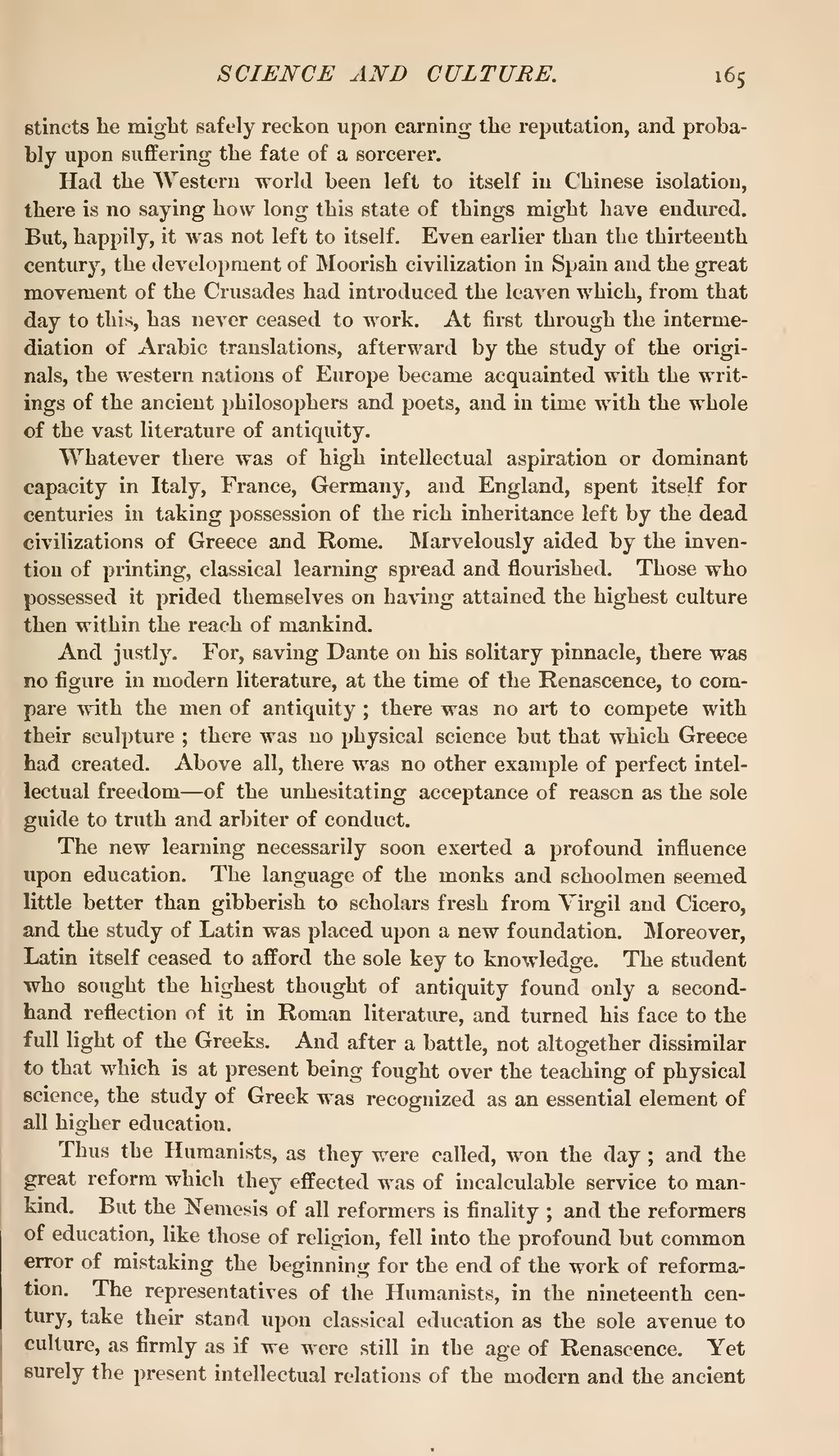stincts he might safely reckon upon earning the reputation, and probably upon suffering the fate of a sorcerer.
Had the Western world been left to itself in Chinese isolation, there is no saying how long this state of things might have endured. But, happily, it was not left to itself. Even earlier than the thirteenth century, the development of Moorish civilization in Spain and the great movement of the Crusades had introduced the leaven which, from that day to this, has never ceased to work. At first through the intermediation of Arabic translations, afterward by the study of the originals, the western nations of Europe became acquainted with the writings of the ancient philosophers and poets, and in time with the whole of the vast literature of antiquity.
Whatever there was of high intellectual aspiration or dominant capacity in Italy, France, Germany, and England, spent itself for centuries in taking possession of the rich inheritance left by the dead civilizations of Greece and Rome. Marvelously aided by the invention of printing, classical learning spread and flourished. Those who possessed it prided themselves on having attained the highest culture then within the reach of mankind.
And justly. For, saving Dante on his solitary pinnacle, there was no figure in modern literature, at the time of the Renascence, to compare with the men of antiquity; there was no art to compete with their sculpture; there was no physical science but that which Greece had created. Above all, there was no other example of perfect intellectual freedom—of the unhesitating acceptance of reason as the sole guide to truth and arbiter of conduct.
The new learning necessarily soon exerted a profound influence upon education. The language of the monks and schoolmen seemed little better than gibberish to scholars fresh from Virgil and Cicero, and the study of Latin was placed upon a new foundation. Moreover, Latin itself ceased to afford the sole key to knowledge. The student who sought the highest thought of antiquity found only a secondhand reflection of it in Roman literature, and turned his face to the full light of the Greeks. And after a battle, not altogether dissimilar to that which is at present being fought over the teaching of physical science, the study of Greek was recognized as an essential element of all higher education.
Thus the Humanists, as they were called, won the day; and the great reform which they effected was of incalculable service to mankind. But the Nemesis of all reformers is finality; and the reformers of education, like those of religion, fell into the profound but common error of mistaking the beginning for the end of the work of reformation. The representatives of the Humanists, in the nineteenth century, take their stand upon classical education as the sole avenue to culture, as firmly as if we were still in the age of Renascence. Yet surely the present intellectual relations of the modern and the ancient
